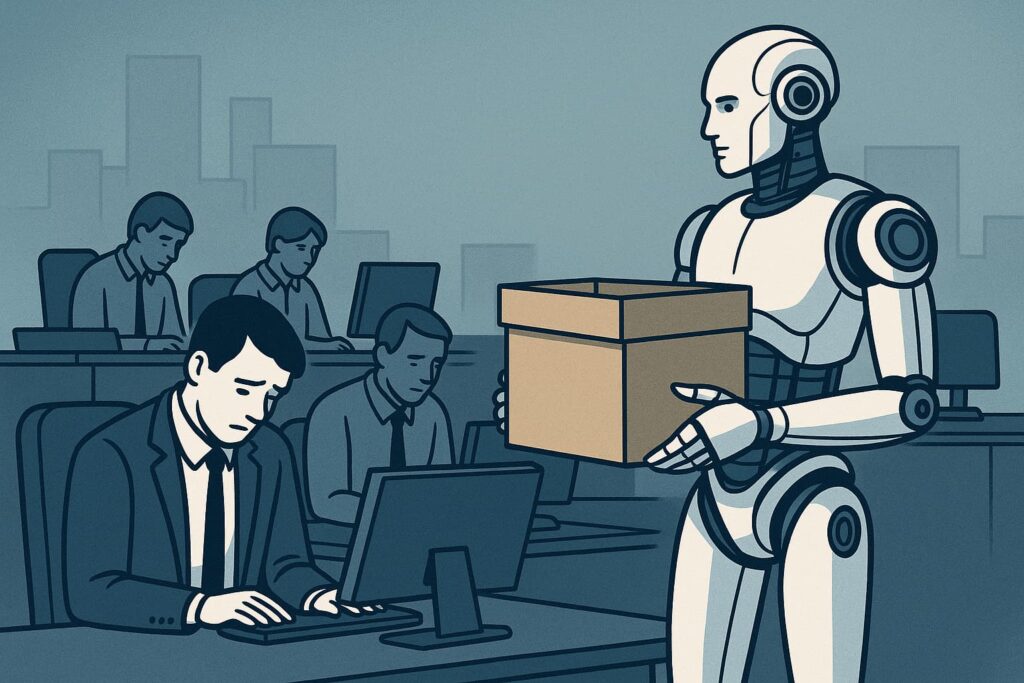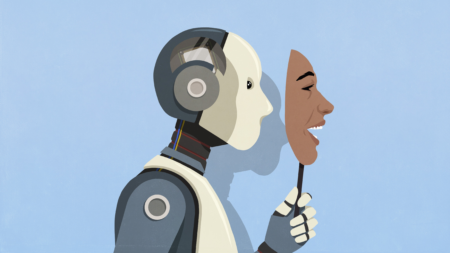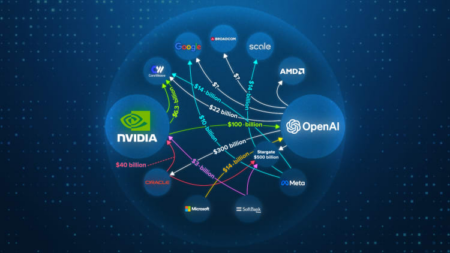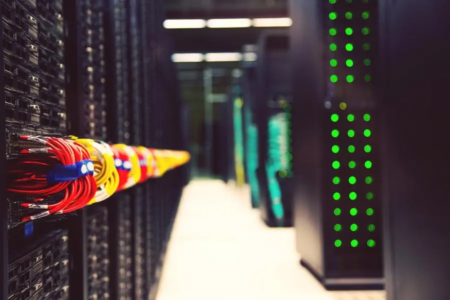Artificial Intelligence (AI) is rapidly transforming the workforce, and new research highlights its uneven impact across age groups.
A recent study by Stanford University reveals that entry-level employment in AI-exposed fields has dropped by 13% since late 2022, with young professionals between the ages of 22 and 25 bearing the brunt of these changes.
What Are the Affected Jobs by AI?
Roles most affected include software developers, customer service representatives, and administrative assistants, where younger workers are losing ground while older employees in the same fields continue to see job gains.
Where AI’s Impact Is Sharpest
The Stanford analysis, based on millions of payroll records from ADP, shows that the steepest declines are occurring in roles where AI can fully automate tasks rather than simply assist human workers.
- For young software developers who are between 22 to 25, employment levels have fallen nearly 20% since late 2022.
- Companies appear to be relying more on automation for basic programming and support tasks, leaving fewer opportunities for less-experienced workers just starting their careers.
The study further emphasizes that these trends are not tied to external economic shifts, such as interest rate hikes or post-pandemic adjustments.
Instead, they directly reflect the growing integration of AI into business operations.
AI’s Uneven Effect Across Industries
Despite these challenges, not all professions are experiencing the same impact.
In sectors less exposed to AI automation, such as nursing and healthcare, job opportunities for younger workers have continued to rise across all age brackets.
This contrast suggests that AI’s disruption is highly concentrated in roles with repetitive, automatable tasks, while other industries remain more resilient.
The Future of Work for Young Professionals
While the debate around AI and employment often centers on long-term risks, this new data provides a real-time look at automation’s immediate effects.
For many young professionals in tech and routine office jobs, the career ladder is becoming increasingly unstable at the entry level.
Experts warn that unless new pathways are created to integrate young talent into AI-driven industries, the generational divide in the workforce could deepen.
The full study is available at Stanford Digital Economy Lab website, offering deeper insights into how automation is reshaping employment patterns worldwide.








